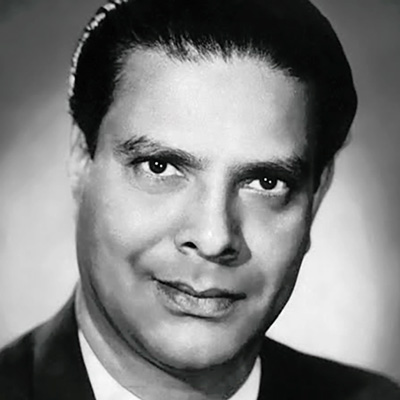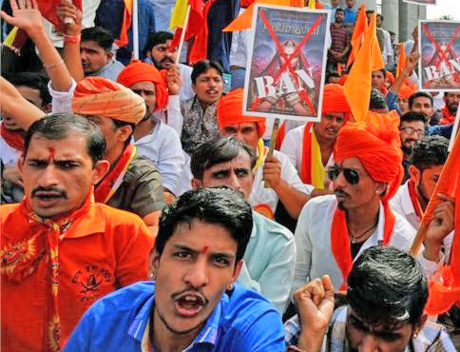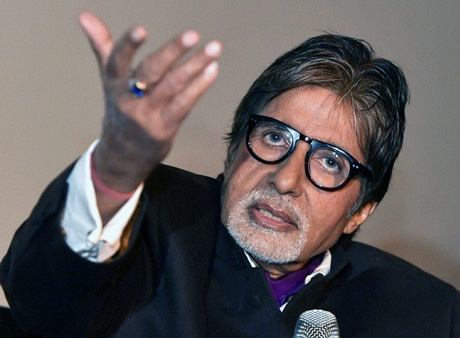Bollywood Masala Mix
Shakeel Badayuni left a trail of
unforgettable songs

Shakeel Badayuni was one of the famous Urdu poets and lyricists of the 1950s and 1960s. Shakeel Badayuni is best remembered for most of his songs with music director Naushad. Shakeel won three Filmfare Awards in a row from 1961 to 1963 for his songs 'Kahin Deep Jale Kahin Dil' (Bees Saal Baad), 'Husnwale Tera Jawab Nahin' (Gharana), and 'Chaudvin Ka Chand Ho' (Chaudvin Ka Chand).
Shakeel Badayuni was born in Badayun, Uttar Pradesh on 3rd August, 1916. Shakeel's father always wanted him to be strong in the academic field to ensure for him a great career ahead. Towards this end, he had arranged for tuition in Farsi, Urdu, Arabic and Hindi for Shakeel in their home.
Although no one from his family had a history in poetry, Shakeel still had strong inclination towards Sher-o-Shayari and poetry. But he was strongly influenced by his distant relative Zia-ul-Qadiri Badayuni, who was a religious shayar. Shakeel was used to hearing his relative's shayari at various mushairas. Shakeel's early education in Urdu, Arabic and Persian languages helped him in that.
In 1938, Shakeel joined the Aligarh Muslim University. While studying in college he participated in college mushaira functions where he also won many times. However in 1940, Shakeel got married to one of his distant relatives, Salma, at the age of 24. Salma and Shakeel were both living in the same home since their childhood, but due to the Parda system they were never close.
After completing his graduation in B.A., Shakeel went to Delhi and took a job as a supply officer. Meanwhile when working in Delhi, he continued to participate in mushairas taking place in the neighbourhood. In 1944, Shakeel moved to Bombay (Mumbai) to become a lyricist in Bollywood.
In Mumbai, he met music director Naushad and producer A.R. Kardar. Kardar and Naushad asked him to summarize his poetic skills in one line. Shakeel then delivered this one line to them: Ham Dil Kaa Afsaanaa Duniyaan Ko Soona Denge, Har Dil Mein Muhabbat Ki Ik Aag Lagaa Denge – We will make the whole world hear the story of our heart ...We will light a fire of love in each and every heart.
Naushad was impressed by his words and quickly signed him for Kardar's film Dard. The music of Dard was successful and especially the song 'Afsaana Likh Rahi Hun'. Thus, Shakeel tasted success with his very first film. After Dard, his association with composer Naushad continued for many more films.
Shakeel had done 99% of his work in the film industry with Naushad. His best films with Naushad include Baiju Bawra (1952), Mother India (1957), and Mughal-e-Azam (1960). Their other well known films include Dulari (1949), Shabab (1954), Ganga Jamuna (1961), and Mere Mehboob (1963). Besides Naushad, he also worked for composers Hemant Kumar and Ravi.
Shakeel's hit songs along with music composer Ravi include 'Husnwaale Tera Jawaab Nahin' (Gharana) and 'Chaudvin Ka Chand Ho' (Chaudvin Ka Chand). Both the songs earned him Filmfare Award as Best Lyricist. However his notable film with composer Hemant Kumar is Sahib Bibi Aur Ghulam in 1962. Shakeel won his third Filmfare Award for the song 'Kahin Deep Jale Kahin Dil' (Bees Saal Baad) in 1963.
While working in Bollywood, Shakeel shared a good rapport with Naushad, Ghulam Mohammed and Ravi. They became close friends and enjoyed great camaraderie. However, although being in the filmy world and unlike other poets and shayars, Shakeel never got driven into taking to alcohol. But he had a problem with diabetes which resulted in his death on 20th April, 1970 at the age of 53. After his passing, his friends formed a trust called 'Yaad e Shakeel' to provide financial help to his family. Shakeel left behind his wife, son and daughter.
Besides film songs, Shakeel also had written many evergreen ghazals, which are still being sung by singers like Pankaj Udhaas and many others.
Shakeel Badayuni - Popular Songs
1. Pyaar Kiya Tho Darna Kya - Mughal-E-Azam
2. Kahin Dip Jalein Kahin Dil - Bees Saal Baad
3. Husnwaale Tera Jawaab Nahin - Gharana
4. Chaudvin Ka Chaand Ho - Chaudhvin Ka Chand
5. Chhod Baabul Ka Ghar Mohe Pi Ka Nagar - Babul
6. Dhundo Dhundo Re Saajna Dhundo - Ganga Jamuna
7. O Dur Ke Musaafir Humko Bhi Saath Le Le - Udan Khatola
8. Duniya Ke Rakhwaale - Baiju Bawra
9. Aaj Puraani Raaho Se - Aadmi
10. Chandan Ka Paalana Resham Ki Dori - Shabaab
11. Aaj Mere Mann Mein Sakhi Baansuri Bajaaye Koyi - Aan
12. Suhaani Raat Dhal Chuki - Dulaari
13. Jindagi Denewaale Sun - Dil-E-Nadan
Filmfare Awards as Best Lyricist
1. 1963 - for song 'Kahin Deep Jale Kahin Dil' - from film Bees Saal Baad (1962)
2. 1962 - for song 'Husnwaale Tera Jawaab Nahin' - from film Gharana (1961)
3. 1961 - for song 'Chaudvin Ka Chaand Ho' - from film Chaudvin Ka Chand (1960)

The film, which tells the story of a 14th Century Hindu queen and a Muslim ruler, has sparked nationwide protests by Hindu caste groups.
The lawyer who brought the petition had previously failed in an attempt to prevent the film's release in India.
The film cannot be released in India until censors have cleared it. No date for release anywhere has yet been set.
Padmavati tells the story of a 14th Century Hindu queen belonging to the high Rajput caste and the Muslim ruler Alauddin Khilji. Bollywood stars Deepika Padukone and Ranveer Singh play the lead roles.
Some Hindu groups and a Rajput caste organisation allege that the movie, directed by Sanjay Leela Bhansali, depicts an intimate romantic scene between the two characters, although the producers of the film deny this.
The Supreme Court on Tuesday of last week dismissed a petition by the lawyer, ML Sharma, to delay its release abroad. It said such a move would amount to a pre-judgement of the Indian film censor.
The judges said those in public office should not criticise the film, as this too would erode the job of the censor board. Rumours of a scene in the film of the Muslim king dreaming of a romantic tryst with the Hindu queen have enraged many, including the Rajput Karnik Sena, a fringe caste group that has called for the film to be banned.
The group had disrupted shooting and one member had slapped Bhansali on the set earlier this year. Others vandalised cinemas and threatened to chop off Padukone's nose, referring to an incident in another epic, Ramayana, where a character has her nose cut off as punishment.
The group also held protests against the film in several states, including Rajasthan, Uttar Pradesh and Haryana. Rajput community members have burned effigies of Bhansali.
Rajasthan Chief Minister Vasundhara Raje has said the film should not be released until "necessary changes are made so that sentiments of any community are not hurt".
A regional leader of the BJP also announced a reward of nearly $1.5m for anyone beheading Bhansali and Padukone.
unity and integration, says
Amitabh Bachchan

The 75-year-old actor said cinema is the only medium that offers "poetic justice" in mere three hours and he is proud to be a part of the film fraternity.
"I have always felt that my request and regard for the Indian film industry have rested in the presence the film industry has had in our world. When we sit inside a dark hall we never ask the creed, the colour (or) the religion of the person sitting next to us.
"We see the same film, we laugh on the same joke, we cry on the same emotion, we sing the same songs. In this fast world of today, where can you find such a wonderful and worthy example of unity and integration as we do in the world of cinema," he said in his acceptance speech.
Recalling a conversation he had with his father, eminent poet Harivansh Rai Bachchan, the actor said, "During the last years, my father used to sit in front of the television and see a Hindi film every evening, often it used to be my own film.
"One day, I asked him what attracts him towards Hindi cinema and he said 'I get to see poetic justice in three hours.' This is the power of cinema. I am a very proud Indian and also a very proud and small member of this exquisite fraternity." Bachchan was presented with the award by Akshay Kumar and Union Minister of Information and Broadcasting Smriti Irani.
The actor, in his speech, also said that Goa is very close to his heart and thanked IFFI for the recognition.
"Goa is very close to my heart. My first film 'Saat Hindustani' was shot in Goa and therefore I have immense amount of memories and love for people of Goa. The very first fan I had was also from Goa, her name is Zareen Fernandez.
"I just want to thank IFFI and Smriti ji for this recognition. I have always felt that accolade that come to me are something I do not deserve. I still feel the same but I do respect this award. Thank you so much for having me here tonight and honouring me."
Actor Sidharth Malhotra paid tributes to Bachchan with a dance performance on his popular songs such as "Khaike paan Banaras", "Saara zamaana" and "Jumma chumma de de".
Akshay, who welcomed the star on stage called him the "father of Indian cinema". The actor recalled meeting Bachchan in Kashmir, as a teenager, and thanked him for inspiring hundreds of people to choose acting.
In her speech, Irani said, "You all, who have seen and studied Amitabh Bachchan's career, must be knowing that there was an incident when Amit ji went to audition for All India Radio and he was rejected and now it is ('vidhi ka vidhan') and our honour that the same ministry (Information and Broadcasting) is presenting you with this award. This is our honour and thank you so much."